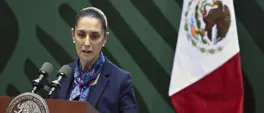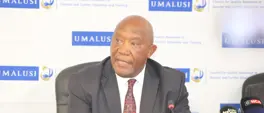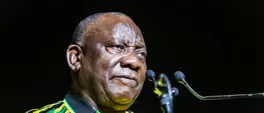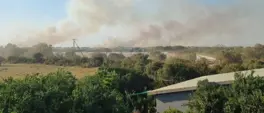Inefficiencies of SA public procurement system make it easy to abuse, OECD report confirms
Paula Luckhoff
26 November 2024 | 19:50The assessment released this week by the Organisation for Economic Co-operation and Development was commissioned by National Treasury.
Stephen Grootes interviews public procurement law specialist Prof. Geo Quinot (Stellenbosch University).
South Africa's public procurement system has been labelled inconsistent, inefficient, lacking in transparency and vulnerable to corruption in a new, independent report.
The findings are contained in an assessment released this week by the Organisation for Economic Co-operation and Development (OECD), based on the internationally recognised Methodology for Assessing Procurement Systems (MAPS).
National Treasury explains in a statement that it took the initiative in 2023 to engage the OECD to assess the South African public procurement system.
The assessment was carried out collaboratively by the OECD, the World Bank, the African Development Bank, National Treasury, and various public, private and civil society organisations.
"Areas that were identified for improvement include an extensive, complex and fragmented legal and regulatory framework; the lack of comprehensive procurement planning; insufficient use of e-procurement systems as well as challenges in maintaining confidentiality and transparency."
National Treasury
Remarking that these 'new' findings echo those of the Zondo Commission, Stephen Grootes gets comment from Geo Quinot, professor in the Department of Public Law at Stellenbosch University.
Professor Quinot says the assessment does serve as a very useful, evidence-based reminder that our public procurement system is 'simply not functional'.
"There are so many levels at which it's just not doing what it's supposed to do, and I think that is a timely reminder for us to go and speed up in responding to something that we've known for some time."
"While very little in this report this is new, there were some surprises - some things they've now put numbers on. It is a little depressing that all these years, post the Zondo Commission report, we still seem to be in the same position."
Prof. Geo Quinot, Public Law - Stellenbosch University
He notes that people often ask how it is that, with so many rules in place, it is still so easy to manipulate the system.
Part of the problem, also noted in the OECD publication, is that SA's public procurement system in fact has too many rules, the prof says.
"This is what the MAPS assessment also found - the system we've got is fragmented is overly complicated, just too many nooks and crannies, and then as a result it's easy to hide a lot of stuff."
"It really boils down to the simple decisions people have to take on what do we need, in what form do we need it and from whom are we going to buy it."
Prof. Geo Quinot, Public Law - Stellenbosch University
For more detail, listen to the interview audio at the top of the article
Get the whole picture 💡
Take a look at the topic timeline for all related articles.
















